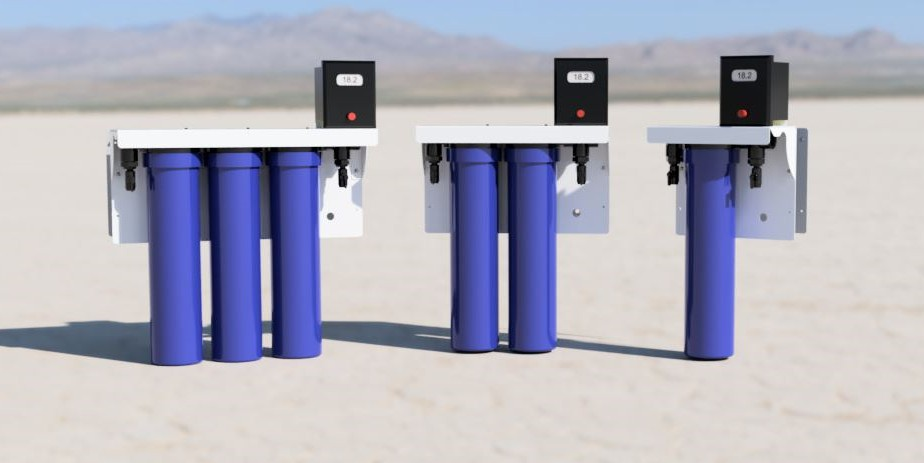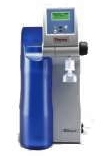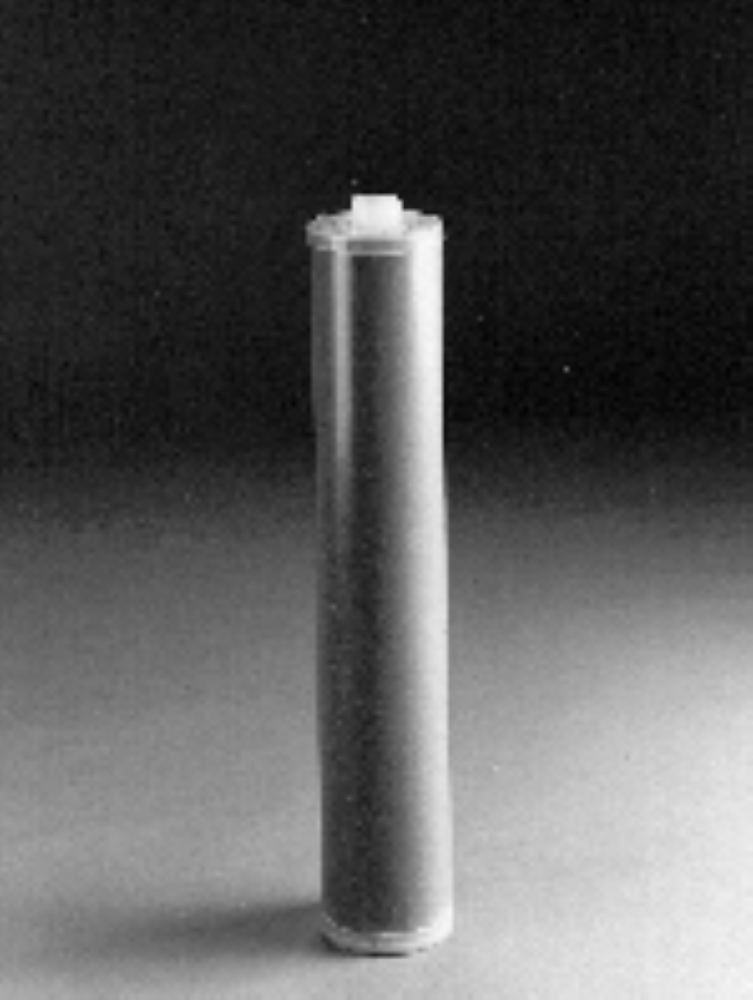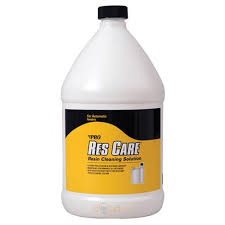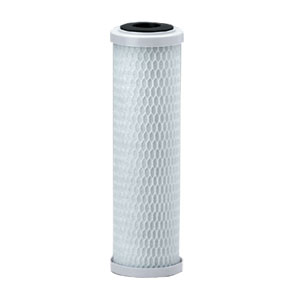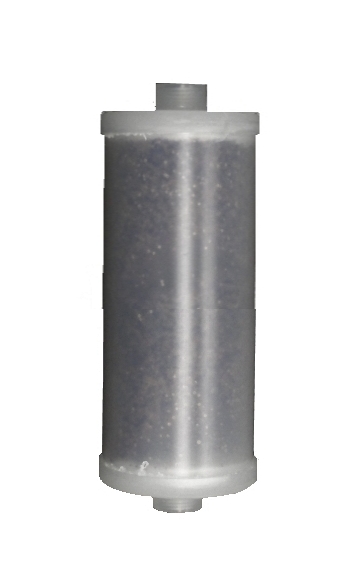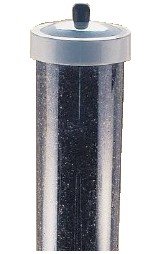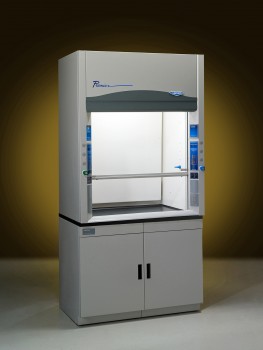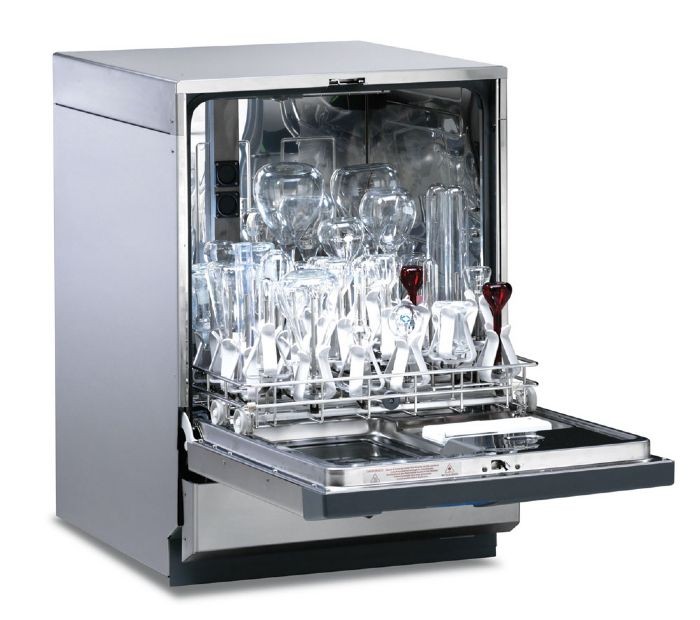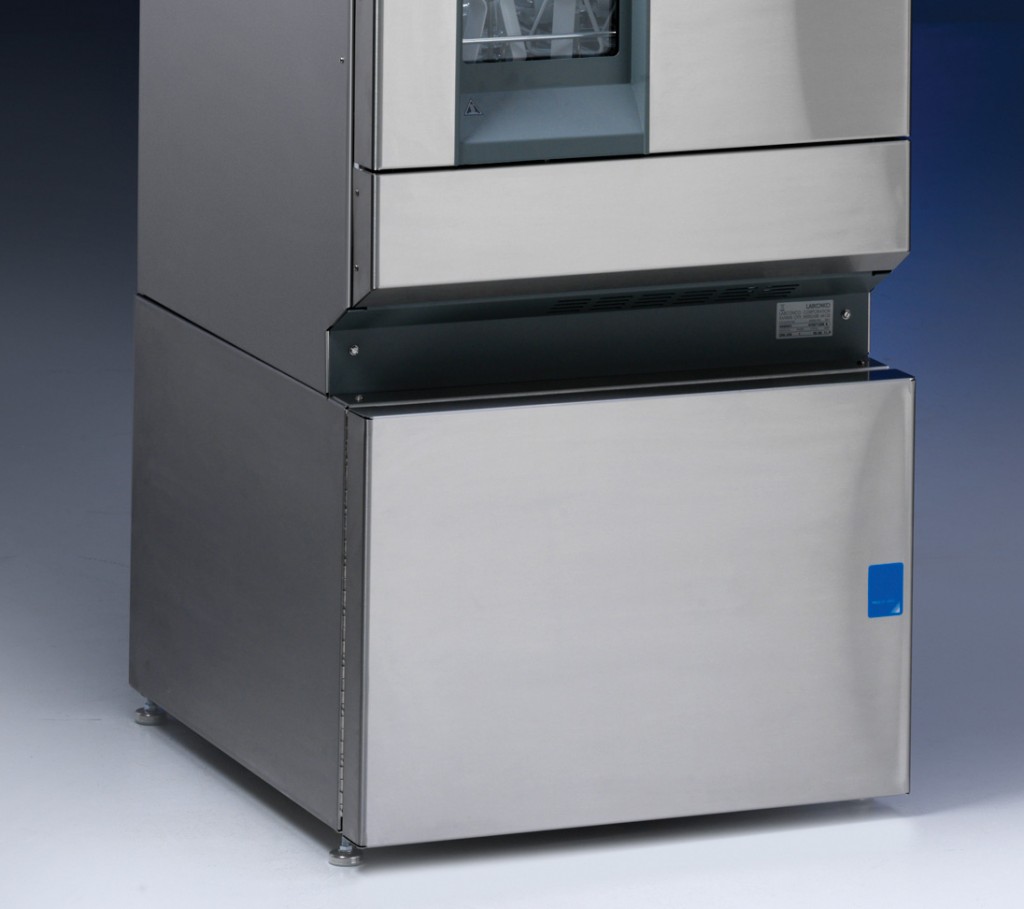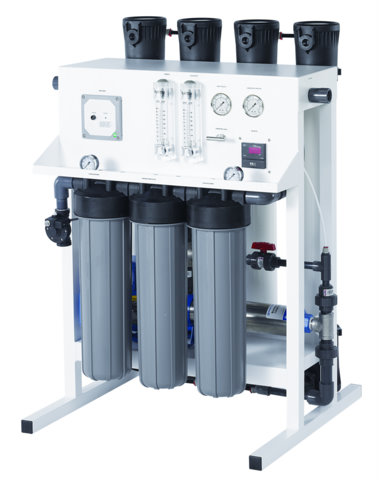Cryptosporidiosis: For Persons With Poor Immune Systems
Cryptosporidiosis ("Crypto") is a diarrheal disease caused by a microscopic parasite, Cryptosporidium parvum, that can live in the intestine of humans and animals and is passed in the stool of an infected person or animal. In persons with weakend immune systems, Crypto can be serious, long-lasting, and sometimes fatal. The more steps you take to avoid contracting Crypto, the less likely you are to become infected.
Who might be immunocompromised or have a weakened immune system?
Examples of persons with weakened immune systems include those with AIDS; cancer and transplant patients who are taking certain immunosuppressive drugs; and those with inherited diseases that affect the immune system. The risk of developing severe disease may differ depending on each person's degree of immune suppression. Following all the recommendations in this fact sheet can be a great personal burden, so consult with your health care provider to determine whether your medical condition makes it advisable to follow all of these recommendations.
What is Cryptosporidiosis?
Cryptosporidiosis (krip-toe-spo-rid-e-o-sis), is a diarrheal disease caused by a microscopic parasite, Cryptosporidium parvum, that can live in the intestine of humans and animals and is passed in the stool of an infected person or animal. Both the disease and the parasite are also known as "Crypto." The parasite is protected by an outer shell that allows it to survive outside the body for long periods of time and makes it very resistant to chlorine disinfection. During the past 2 decades, Crypto has become recognized as one of the most common causes of waterborne disease (drinking water and recreational water) in humans in the United States. The parasite is found in every region of the United States and throughout the world.
What are the symptoms of Crypto?
Symptoms include diarrhea, loose or watery stool, stomach cramps, upset stomach, and a slight fever. Some people have no symptoms.
How long after infection do symptoms appear?
Symptoms generally begin 2-10 days after being infected.
How long will symptoms last?
In persons with average immune systems, symptoms usually last about 2 weeks; the symptoms may go in cycles in which you may seem to get better for a few day, then feel worse before the illness ends.
How does Crypto affect you if your immune system is severely weakened?
In persons with AIDS and in others whose immune system is weakened, Crypto can be serious, long-lasting, and sometimes fatal. If your CD4_ cell count is below 200, Crypto is more likely to cause diarrhea and other symptoms for a long time. If your CD4_ count is above 200, your illness may not last more than 1 to 3 weeks or slightly longer. However, you could still carry the infection, which means that the Crypto parasites are living in your intestine, but are not causing illness. As a carrier of Crypto, you could infect other people. If your CD4_ count later drops below 200, your symptoms may reappear.
How is Crypto spread?
Crypto lives in the intestine of infected humans or animals. Millions of Crypto can be released in a bowel movement from an infected human or animal. You can become infected after accidentally swallowing the parasite. Crypto may be found in soil, food, water, or surfaces that have been contaminated with the feces from infected humans or animals. Crypto is not spread by contact with blood.
Crypto can be spread:
*By putting something in your mouth or accidentally swallowing something that has come in contact with the stool of a person or animal infected with Crypto.
*By swallowing recreational water contaminated with Crypto.
*Recreational water is water in swimming pools, hot tubs, Jacuzzis, fountains, lakes, rivers, springs, ponds, or streams that can be contaminated with sewage or feces from humans or animals.
*By eating uncooked food contaminated with Crypto. Thoroughly wash with uncontaminated water all vegetables and fruits you plan to eat raw. See below for information on making water safe.
*By accidentally swallowing Crypto picked up from surfaces (such as toys, bathroom fixtures, changing tables, diaper pails) contaminated with stool from an infected person.
I have been diagnosed with Crypto. Should I worry about spreading infection to others?
Yes, Crypto can be very contagious. Follow these guidelines to avoid spreading Crypto to others.
Wash your hands with soap and water after using the toilet, changing diapers, and before eating or preparing food.
Avoid swimming in recreational water (pools, hot tubs, lakes or rivers, the ocean, etc.) if you have Crypto and for at least 2 weeks after diarrhea stops. You can pass Crypto in your stool and contaminate water for several weeks after your symptoms have ended. This has resulted in many outbreaks of Crypto among recreational water users. Note: you are not protected in a chlorinated pool because Crypto is chlorine resistant and can live for days in pools.
Avoid fecal exposure during sex.
What should I do if I think I have Crypto?
See your health care provider.
How is a Crypto infection diagnosed?
Your health care provider will ask you to submit stool samples to see if you are infected. Because testing for Crypto can be difficult, you may be asked to submit several stool specimens over several days. Because tests for Crypto are not routinely done in most laboratories, your health care provider should specifically request testing for the parasite.
What is the treatment for Crypto?
People who are in poor health or who have a weakened immune system are at higher risk for more severe and more prolonged illness. If you have diarrhea, drink plenty of fluids to prevent dehydration. Rapid loss of fluids because of diarrhea can be life-threatening in babies; parents should consult their health care provider about fluid replacement therapy options for babies. Anti-diarrheal medicine may help slow down diarrhea, but consult with your health care provider before taking it.
A new drug, nitazoxanide, has been FDA approved for treatment of diarrhea caused by Cryptosporidium in people with healthy immune systems. However, the effectiveness of nitazoxanide in immunosuppressed individuals is unclear. Some drugs, such as paromomycin, may reduce the symptoms of Crypto and new drugs are being tested. However, Crypto is usually not cured and may come back if the immune status worsens. For persons with AIDS, anti-retroviral therapy that improves immune status will also decrease or eliminate symptoms of Crypto infection. See your health care provider to discuss treatment and anti-retroviral therapy used to improve immune status.
How can I protect myself from Crypto?
You can reduce your risk of getting Crypto. The more steps you take, the less likely you are to get infected. These actions will also help protect you against other diseases. Following all the recommendations in this fact sheet can be a great personal burden. Consult with your health care provider to determine whether your medical condition makes it advisable to follow all of these recommendations.
1. Wash your hands.
Washing your hands often with soap and water is probably the single most important step you can take to prevent Crypto and other illnesses. Always wash your hands before eating and preparing food. Wash your hands well after touching children in diapers; after touching clothing, bedding, toilets, or bed pans soiled by someone who has diarrhea; after gardening; any time you touch pets or other animals; and after touching anything that might have had contact with even the smallest amounts of human or animal stool, including dirt in your garden and other places. Even if you wear gloves when you do these activities you should still wash well when you finish. Children should be supervised by adults to make sure they wash their hands well.
2. Practice safer sex.
Infected people may have Crypto on their skin in the anal and genital areas, including the thighs and buttocks. However, since you cannot tell if someone has Crypto, you may want to take these precautions with any sex partner:
"Rimming" (kissing or licking the anus) is so likely to spread infection that you should avoid it, even if you and your partner wash well before.
Always wash your hands well after touching your partner's anus or rectal area.
3. Avoid touching farm animals.
If you touch a farm animal, particularly a calf, lamb, or other young animal, or visit a farm where animals are raised, wash your hands well with soap and water before preparing food or putting anything in your mouth. Do not touch the stool of any animal. After you visit a farm or other area with animals, have someone who is not immunocompromised clean your shoes, or wear disposable gloves if you clean them yourself. Wash your hands after taking off the gloves.
4. Avoid touching the stool of pets.
Most pets are safe to own. However, someone who is not immunocompromised should clean their litter boxes or cages, and dispose of the stool. If you must clean up after a pet, use disposable gloves. Wash your hands afterwards. The risk of getting Crypto is greatest from pets that are less than 6 months old, animals that have diarrhea, and stray animals. Older animals can also have Crypto, but they are less likely to have it than younger animals. If you get a puppy or kitten that is less than 6 months old, have the animal tested for Crypto before bringing it home. If any pet gets diarrhea, have it tested for Crypto.
5. Avoid swallowing water when swimming in the ocean, lakes, rivers, or pools, and when using hot tubs.
When swimming in lakes, rivers, or pools, and when using hot tubs, avoid swallowing water. Several outbreaks of Crypto have been traced to swallowing contaminated water while swimming. Crypto can live in chlorinated swimming pools and waterparks for days. Crypto also can remain alive in salt water for several days, so swimming in polluted ocean water may also be unsafe.
For more information about recreational water illnesses (RWIs).
6. Wash and/or cook your food.
Fresh vegetables and fruits may be contaminated with Crypto. Therefore, wash well all vegetables or fruit you will eat uncooked. If you take extra steps to make your water safe (see below for ways to do so), use this safe water to wash your fruits and vegetables. When you can, peel fruit that you will eat raw, after washing it. Do not eat or drink unpasteurized milk or dairy products. Cooking kills Crypto. Therefore, cooked food and heat-processed foods are probably safe if, after cooking or processing, they are not handled by someone infected with Crypto, or exposed to possibly contaminated water.
7. Drink safe water.
Do not drink water directly from lakes, rivers, streams, or springs. Because you cannot be sure if your tap water contains Crypto, you may wish to avoid drinking tap water, including water or ice from a refrigerator, which is usually made with tap water. Because public water quality and treatment vary throughout the United States, always check with the local health department and water utility to see if they have issued any special notices about the use of tap water by immunocompromised persons. You may also wish to take some additional measures: boiling your water, filtering your water with certain home filters, or drinking certain types of bottled water. Processed carbonated (bubbly) drinks in cans or bottles are probably safe, but drinks made at a fountain might not be because they are made with tap water. If you choose to take these extra measures, use them all the time, not just at home. If the public health department advises boiling the water, do not drink tap water unless you boil it. You could also use one of the bottled waters described below.
A. Boiling water: Boiling is the best extra measure to ensure that your water is free of Crypto and other germs. Heating water at a rolling boil for 1 minute kills Crypto, according to CDC* and EPA** scientists. After the boiled water cools, put it in a clean bottle or pitcher with a lid and store it in the refrigerator. Use the water for drinking, cooking, or making ice. Water bottles and ice trays should be cleaned with soap and water before use. Do not touch the inside of them after cleaning. If you can, clean water bottles and ice trays yourself.
B. Filtering tap water: Not all available home water filters remove Crypto. All filters that have the words "Reverse Osmosis" on the label protect against Crypto. Some other types also work, but not all filters that are supposed to remove objects 1 micron or larger from water are the same. Look for the words "absolute 1 micron." Some "1 micron" and most "nominal 1 micron" filters will not work against Crypto. Also look for the words "Standard 53" and the words "cyst reduction" or "cyst removal" for an NSF-tested filter that works against Crypto.
To find out if a particular filter removes Crypto, contact NSF International (3475 Plymouth Road, P.O. Box 130140, Ann Arbor, MI 48113-0140, tel: 1-800-673-8010, fax: 1-313-769- 0109), an independent testing group. Ask NSF for a list of "Standard 53 Cyst Filters." Check the model number on the filter you intend to buy to make sure it is exactly the same as the number on the NSF list. Look for the NSF trademark on filters, but be aware that NSF tests filters for many different things. Because NSF testing is expensive, many filters that may work against Crypto have not been tested. Reverse-osmosis filters work against Crypto whether they have been tested by NSF or not. Many other filters not tested by NSF also work if they have an absolute pore size of 1 micron or smaller.
Filters designed to remove Crypto
(any of the four messages below on a package label indicate that the filter should be able to remove Crypto)
Reverse-osmosis (with or without NSF testing)
Absolute pore size of 1 micron or smaller
(with or without NSF testing)
Tested and certified by NSF Standard 53 for cyst removal
Tested and certified by NSF Standard 53 for cyst reduction
Filters labeled only with these words may not be designed to remove Crypto
Nominal pore size of 1 micron or smaller
1-micron filter
Effective against Giardia
Effective against parasites
Carbon filter
Water purifier
EPA approved - Caution: EPA does not approve or test filters.
EPA registered - Caution: EPA does not register filters for Crypto removal
Activated carbon
Removes chlorine
Ultraviolet light
Pentiodide resins
Water softener
Filters collect germs from your water, so someone who is not immuncompromised should change the filter cartridges for you; if you do it yourself, wear gloves and wash your hands afterwards. Filters may not remove Crypto as well as boiling does because even good brands of filters may sometimes have manufacturing flaws that allow small numbers of Crypto to get past the filter. Also, poor filter maintenance or failure to replace filter cartridges as recommended by the manufacturer can cause your filter to fail.
C. Bottled water: If you drink bottled water, read the label and look for this information:
Bottled water labels reading "well water," "artesian well water," "spring water," or "mineral water" do not guarantee that the water does not contain Crypto. However, water that comes from protected well or protected spring water sources is less likely to contain Crypto than bottled water or tap water from less protected sources, such as rivers and lakes. Any bottled water (no matter what the source) that has been treated by one or more of the methods listed in the top part of the water filters table is considered safe.
D. Home distillers: You can remove Crypto and other germs from your water with a home distiller. If you use one, you need to carefully store your water as recommended for storing boiled water.
E. Other drinks: Soft drinks and other beverages may or may not contain Crypto. You need to know how they were prepared to know if they might contain Crypto.
8. Take extra care when traveling.
If you travel to developing nations, you may be at a greater risk for Crypto because of poorer water treatment and food sanitation. Warnings about food, drinks, and swimming are even more important when visiting developing countries. Avoid foods and drinks, in particular raw fruits and vegetables, tap water, or ice made from tap water, unpasteurized milk or dairy products, and items purchased from street vendors. These items may be contaminated with Crypto. Steaming-hot foods, fruits you peel yourself, bottled and canned processed drinks, and hot coffee or tea are probably safe. Talk with your health care provider about other guidelines for travel abroad.
For more information on Crypto, call the CDC National HIV and AIDS Hotline at 1-800-342-AIDS.
This information was prepared by the inter-agency Working Group on Waterborne Cryptosporidiosis, which includes representatives from the Centers for Disease Control and Prevention, Environmental Protection Agency, Food and Drug Administration, U.S. Department of Agriculture, National Association of People With AIDS, AIDS Coalition to Unleash Power, and representatives of state and local health departments and water utilities.
*CDC--Centers for Disease Control and Prevention
**EPA--Environmental Protection Agency
http://www.cdc.gov/ncidod/dpd/parasites/cryptosporidiosis/factsht_crypto_prevent_ci.htm
|
Images are representative of the products. Images may or may not be of the actual product. If it is important e-mail us for an actual image if available.
* Flat Rate UPS shipping when able to ship via UPS and is in the USA excluding Hawaii and Alaska.
Larger Items may not be able to ship via UPS, in that case freight charges will be quoted seperately.
International shipping will be quoted after the order is placed. You will have the opportunity to cancel before we finalize your order.
Terms and conditions
Credit Application
Privacy
Policy
List All Products
|
